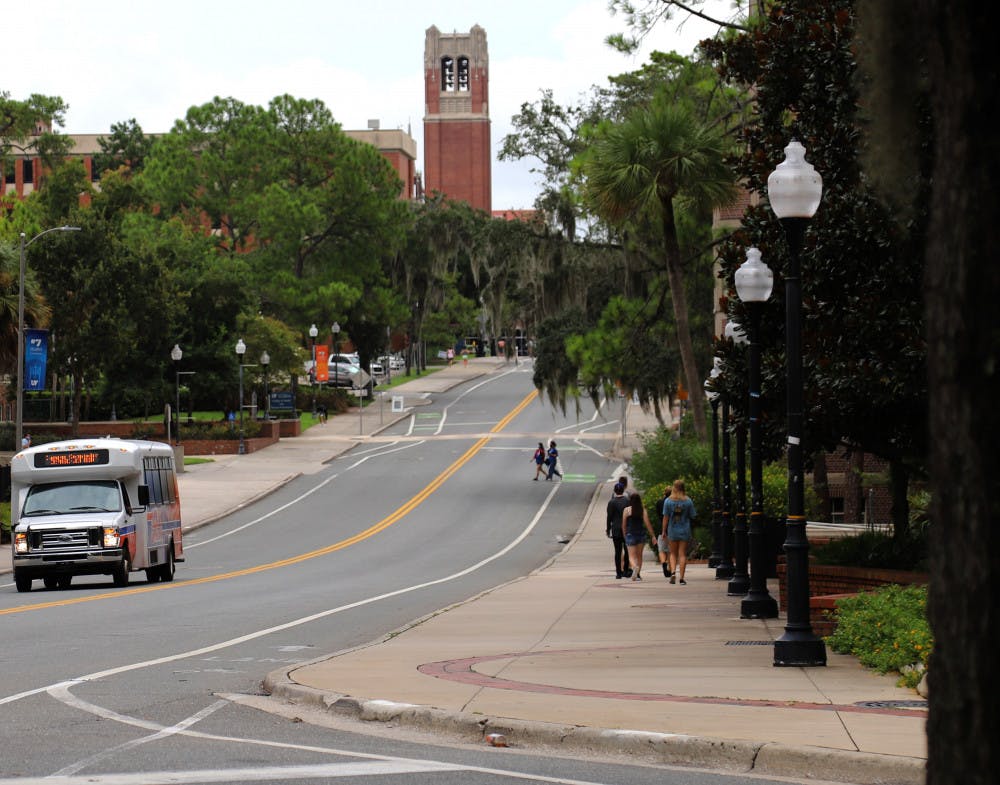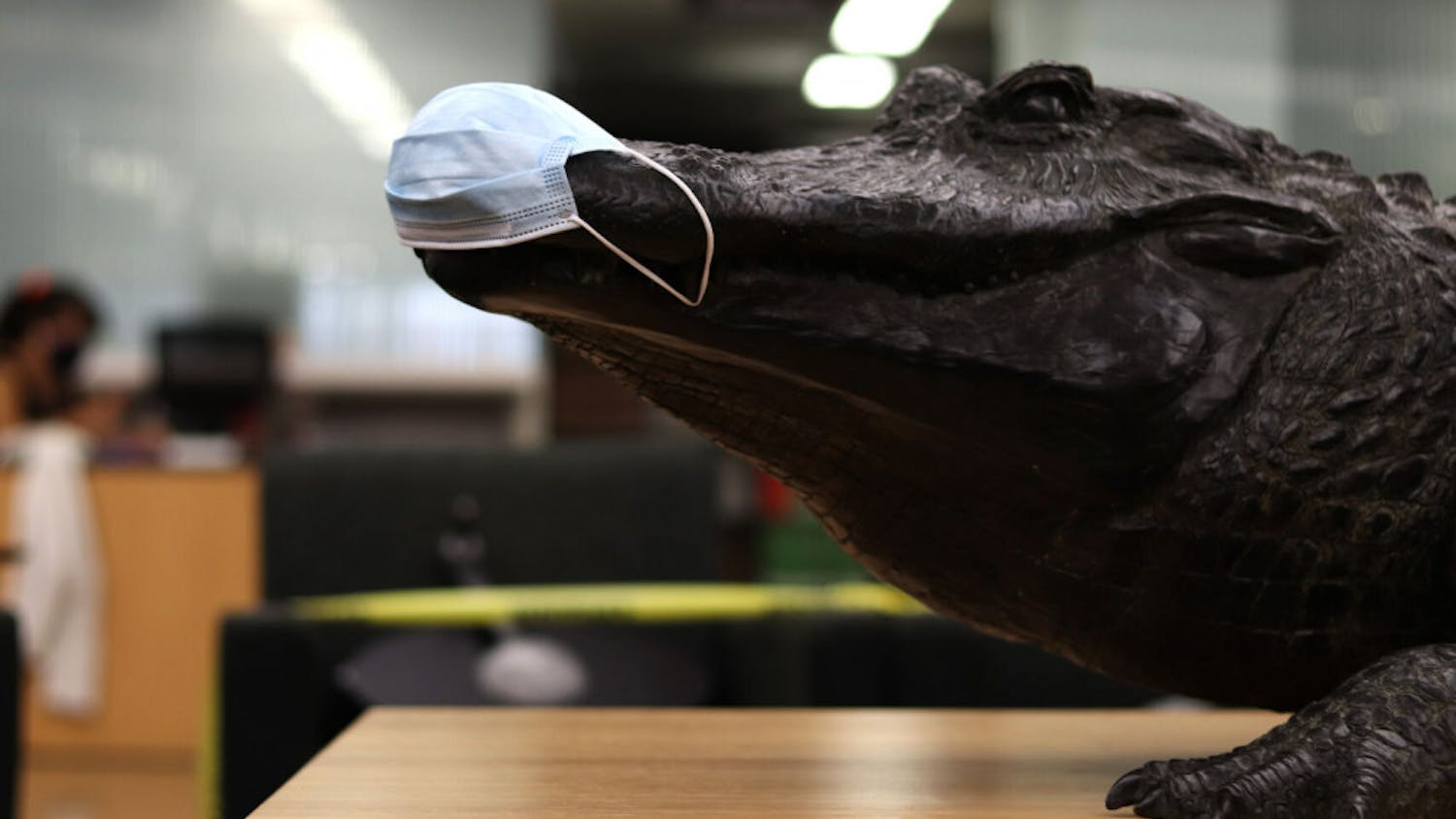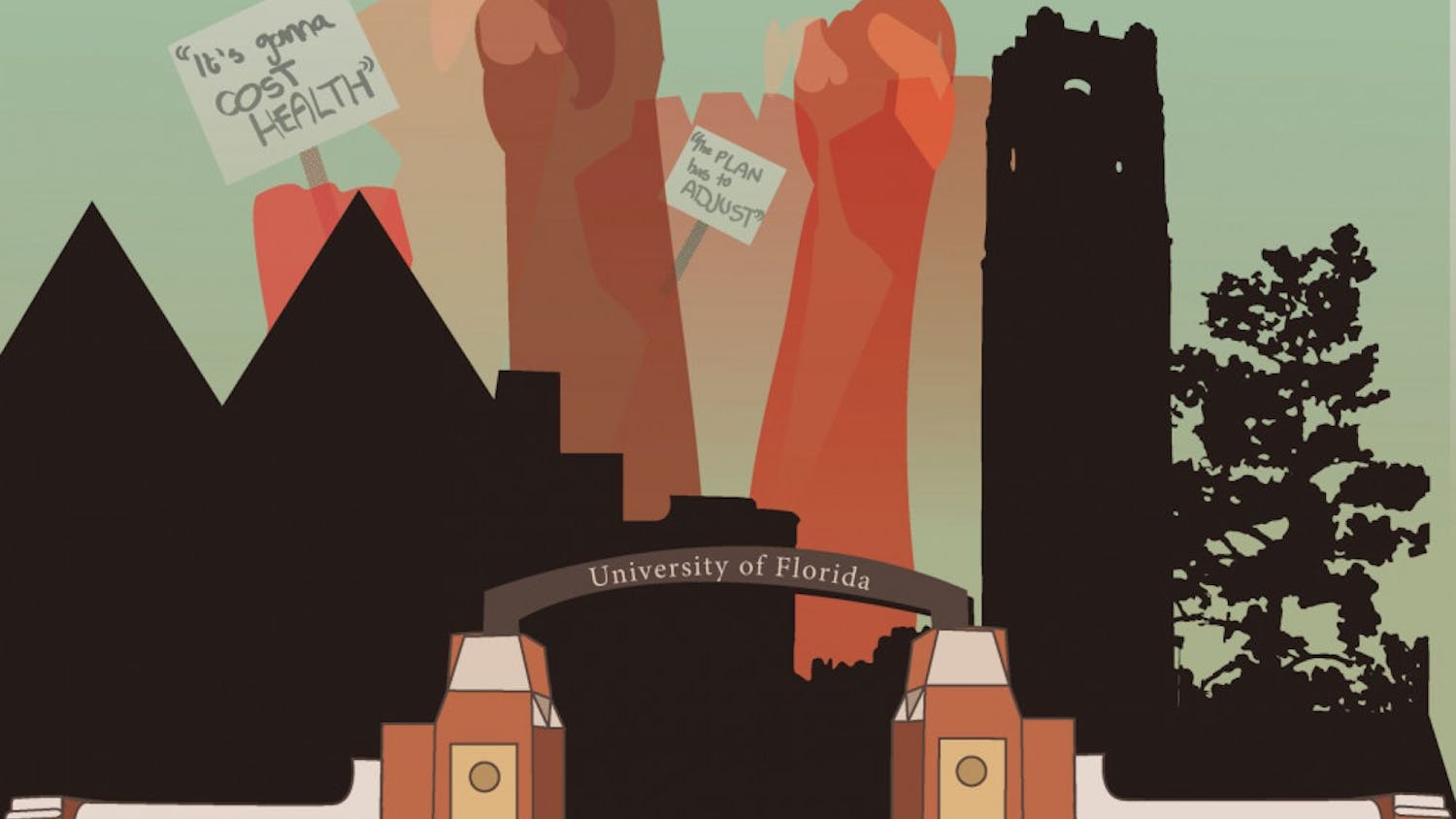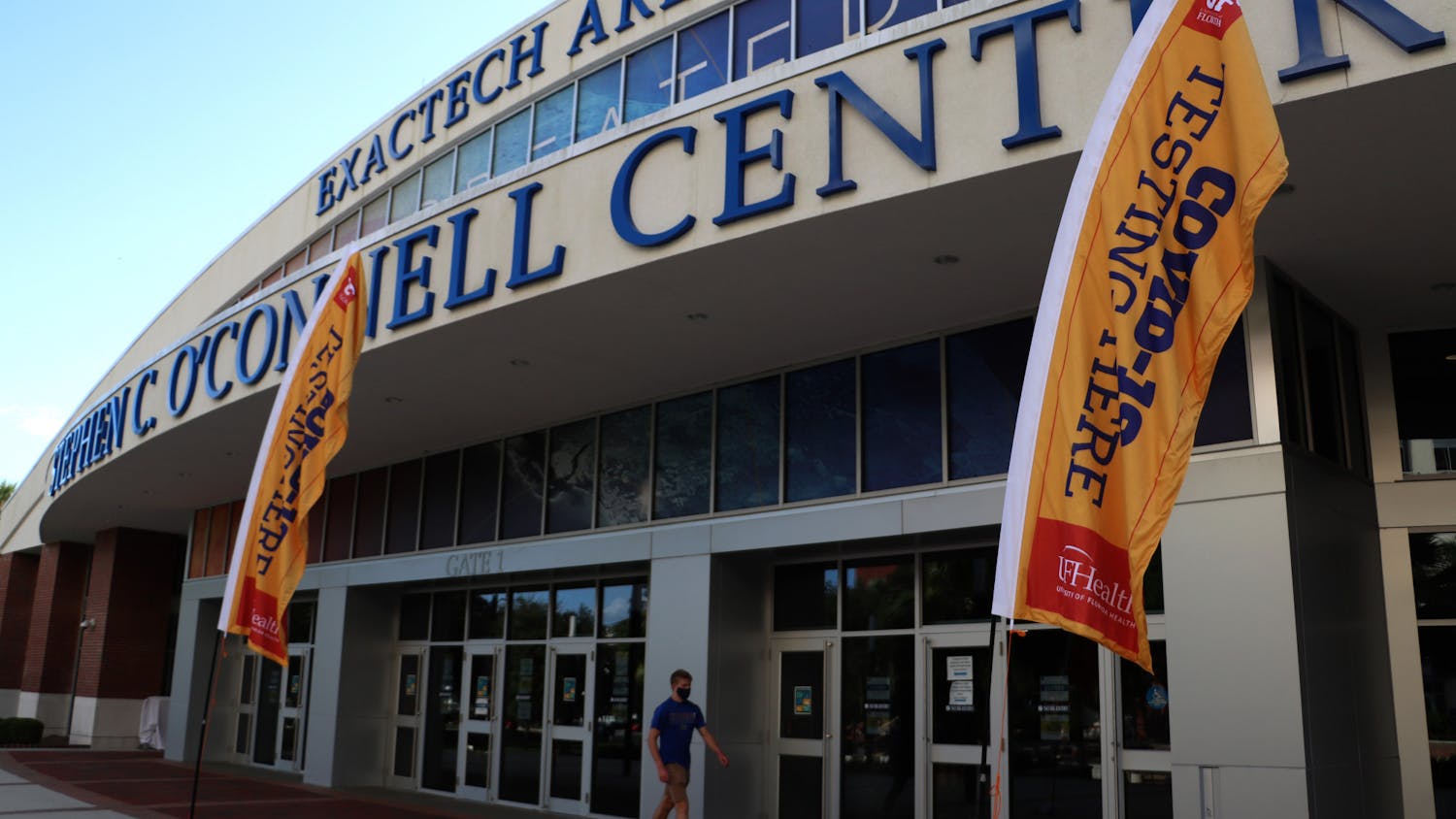Days before thousands of students were scheduled to return to UF’s campus, some faculty learned that about 61% of students attending in-person classes would be tested for COVID-19 by the first day of class, and students won’t need a negative test result to be cleared for campus.
Faculty had the option to move their first class online but learned they could face disciplinary action for moving in-person classes online longer.
These were some of the concerns brought up by the College of Liberal Arts and Sciences faculty during a faculty town hall Jan. 9. The head of UF Health’s Screen, Test and Protect program Michael Lauzardo held the meeting with epidemiologist Jerne Shapiro and CLAS Dean David Richardson to address in-person class guidelines and faculty questions.
Richardson sent an email to CLAS professors on Jan. 8 outlining how students are cleared to return to campus after being tested for COVID-19, not after receiving a negative test result. If a student’s result comes back positive, their status will be changed to “not cleared.” About 61% of students taking in-person classes would be tested by Jan. 11, and the remaining testing is anticipated to be mostly complete in the first week, Richardson wrote.
UF spokesperson Steve Orlando confirmed the guidelines outlined in Richardson’s email and the Jan. 9 meeting apply to all UF faculty teaching in-person classes.
Students will not be required to receive a negative test result before attending in-person classes because UF does not have the capacity to test all students in face-to-face classes at once, Lauzardo said in the town hall, and UF couldn’t force them to come back in time and wait for the results.
Richardson included in the email that professors with in-person sections could hold the first day of classes online but could face disciplinary action if they change the structure of their classes by temporarily or permanently holding face-to-face classes online or encouraging students to join online sections.
“Changing the scheduled modality of instruction in the plan of the syllabus, either temporarily or permanently, is a violation of UF policy,” Richardson wrote in the email. “Actions that contravene these principles may result in a finding of misconduct and disciplinary action by the university in accordance with UF regulations.”
Professors who notice uncleared students in their face-to-face classes should remind them in private to join online sections until they are clear, Richardson wrote. A student’s clearance status shouldn’t be disclosed to the classroom.
Students who are tested and symptomatic will not be cleared for campus, Lauzardo said in the meeting. Graduate students won’t be tested for the return to campus initiative because they’re a lower risk group, Shapiro said, but they will be tested biweekly with students in in-person classes and students living in residence halls.
Graduate students behave differently than undergraduate students, making them less of a risk, Lauzardo said. He did not explain how graduate students behave differently than undergraduate students.
“We have one mission, and that mission is to protect our colleagues and protect this campus as much as possible,” Lauzardo said. “And that’s what we’ve done, and we’ve done that as best we could.”
Additionally, students who have also been in contact with someone who tested positive and who haven’t participated in bi-weekly testing will not be cleared for campus. Class rosters will indicate who is and isn’t cleared for campus, Richardson wrote in the email to CLAS faculty.
“Your voices have been heard, and the folks at Screen, Test and Protect, like us, are doing all that is possible to mitigate the concerns and frustrations that you all have,” Richardson said during the meeting.
Professors who notice uncleared students in their face-to-face classes should remind them in private to join online sections until they are clear, Richardson wrote. A student’s clearance status shouldn’t be disclosed to the classroom.
To ensure only students who are cleared for campus attend in-person classes, students should show their professors before class that they are marked “cleared for campus” on One.UF, Shapiro suggested in the meeting.
“I do not feel that the classroom setting is an unsafe place with the proper precautions that are being taken,” Shapiro said.
If a student refuses to leave or refuses to wear a mask, professors can call University Police to have them removed, Lauzardo said.
“We’re focused on the data, we’re focused on the evidence,” Lauzardo said. “The data doesn’t support that the classroom is dangerous.”
However, the Centers for Disease Control and Prevention released a report on Jan. 8 that university counties with in-person instruction had a larger spread of the virus than those with remote instruction.
Lauzardo also gave an update on vaccinations.
Vaccinations for faculty 65 years and older began the week of Jan. 4. Those who require accommodations will be offered vaccines soon, Lauzardo said. UF will get more vaccines when US President-elect Joe Biden is inaugurated on Jan. 20 because he will push vaccines that were saved as second doses forward for first doses, he said.
Vaccines will be available to high-risk groups in the coming week at Hull road, Lauzardo added. He said vaccines will be available to the general public in the near future, but there is no set date.
In the Fall, only four out of 1,100 professors tested positive for the virus, and those exposures were not from classroom settings, Lauzardo said.
In the case of a COVID-19 spike, UF will focus on shutting down certain areas that are causing the cases, rather than the whole university, Lauzardo said. UF will also initiate a campus shutdown if UF Health Shands reaches capacity and is unable to care for patients.
Currently, UF Health Shands is within its capacity, Lauzardo said, and there are 20 patients in the intensive care unit.
Contact Meghan McGlone at mmcglone@alligator.org. Follow her on Twitter @meggmcglone.

Meghan McGlone is a UF junior majoring in journalism and English, and this year she’s the City and County Commission reporter. In past years, she’s served as the University Editor, the Student Government reporter, and other positions. Her favorite past time is eating gummy worms and reading a good book.






